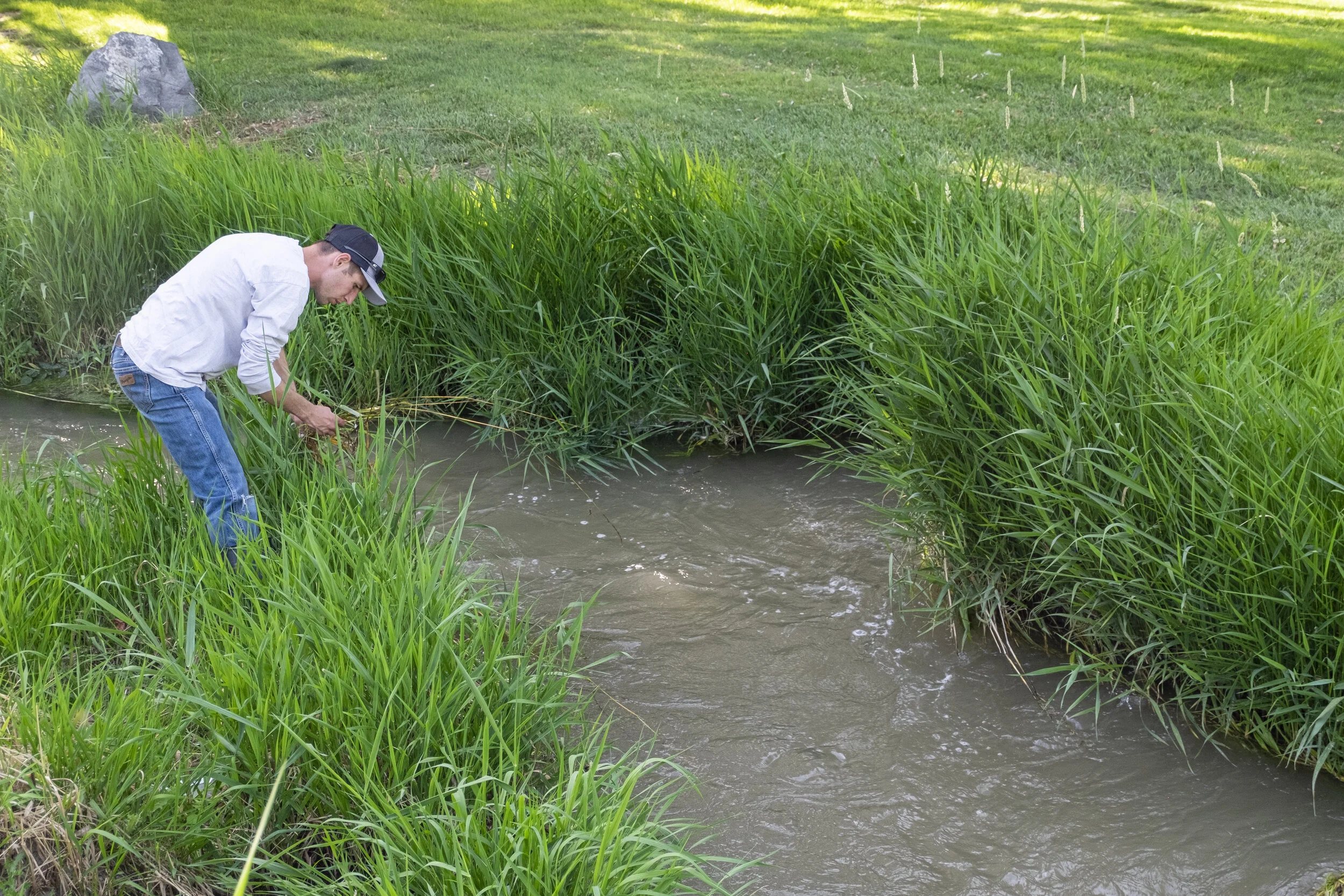Biting Black Flies
Biting black flies are a nuisance to most human activities in our area. While not a carrier of disease to humans, they can vector a disease known as Vesicular Stomatitis to livestock such as cows, horses, and sheep.
The socio-economic impact of black flies in not only noticed when Vesicular Stomatitis is detected, but when black fly populations are too numerous, they be such an irritation to livestock that the animals will fail to gain weight.
Control to biting black flies is best accomplished in the larval stage of their lifecycle. In the larval stage, black flies are actively feeding. By applying a soil bacteria that kills black fly larva via ingestion, the exponential reproduction of black flies is broken, and populations will crash.

Biting Black Flies like moving water to lay their eggs in. You can help reduce Black Fly numbers by reducing habitat! Keep ditches and streams clean and free of debris, and vegetation mowed will help.
How We Fight Biting Black Flies
Monitoring
Our crew regularly inspects vegetation and rocks in and around moving bodies of water. We also deploy ropes across canals. The rope attracks black flies to lay their eggs on, and that makes it easier for us to monitor when treatment is needed.
Treatment
TFCPAD focuses on larvicidal treatment for biting black flies. We apply a liquid pesticide directly into the moving water body to kill black fly larvae. Our pesticide we treat with is non-toxic to humans, people, and fish.
Have You Wondered What Those Yellow Floating Ropes in the Canals Are?
Yellow ropes are one of the ways that the Twin Falls County Pest Abatement District (TFCPAD) sampled for Black Fly Larvae and gauged the effectiveness of the treatments. Buffalo gnats or Black Flies can only develop in moving water. Larvae anchor themselves to rocks or vegetation and let the flowing water bring them food. Depending on water temperature and food, they can develop into adults in as little as a week or they can take up to several months. Adults can travel up to 30 miles!
Vesicular Stomatitis
Vesicular Stomatitis can be transmitted from black flies to livestock such as cows, horses, and sheep. This disease is very contagious, and typically causes a quarantine when detected. The socio-economic impact of black flies in not only noticed when Vesicular Stomatitis is detected, but when black fly populations are too numerous, they be such an irritation to livestock that the animals will fail to gain weight. Livestock graze well when they can spread out and forage. As black flies in large numbers begin to pester a flock or herd, the animals will group up, stomp their hooves and swat their tails all day for relief, and then try to feed at night.



